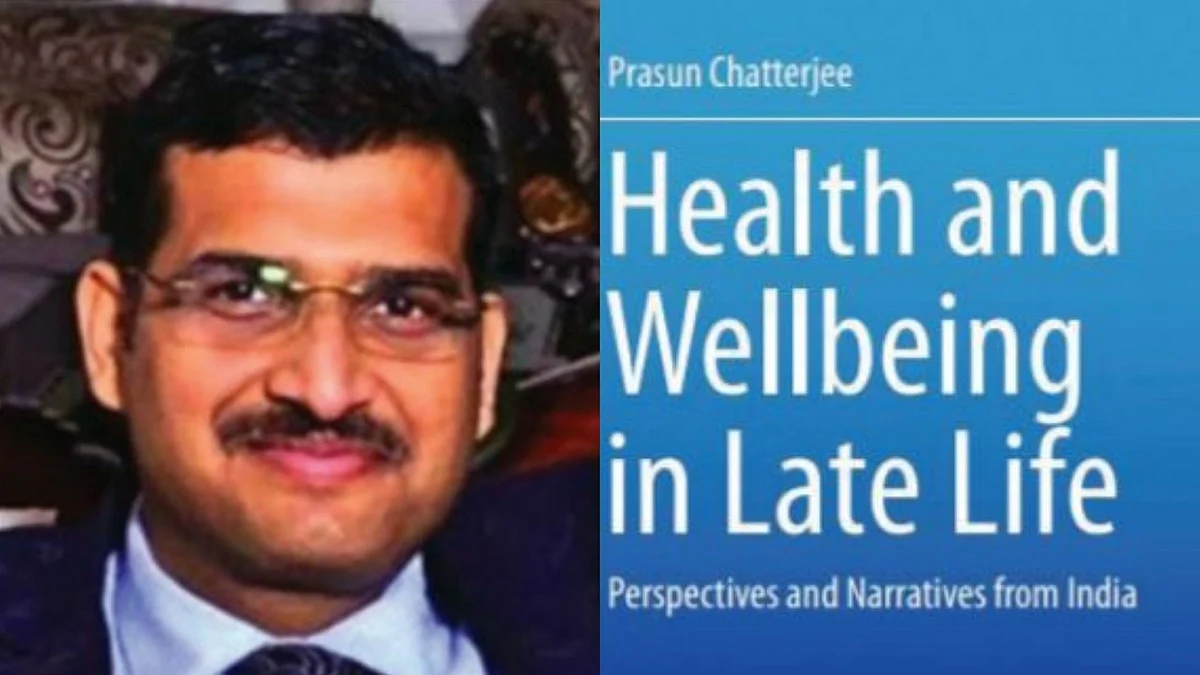This book on geriatric care is useful, but not an easy read
Growing old is seen as a time of loneliness and unproductive dependence. Successful ageing is a dynamic concept which this book by Dr Prasun Chatterjee, a geriatrician at AIIMS, discusses

What exactly do you do?” Dr Prasun Chatterjee, a geriatrician at AIIMS, Delhi, faces that question time and again.
Typically, he explains: “We prepare seniors for active and purposeful ageing.” That triggers a deluge of questions: how to enjoy one’s golden years with dignity and quality of life, how to find the greatest care available for a loved one, how to cope with the challenges of failing body and mind. To the doctor, there is one word to define what he sees around him: “Unpreparedness.”
“Why are we so unprepared for old age?” he asks in his just-published book, 'Health and Wellbeing in Late Life', a collage of experience and evidence. Between profession and passion, academia and activism, medical knowledge and case-studies, the VIPs of Lutyens’ Delhi and the penniless patients thronging AIIMS, Chatterjee raises a critical question: “Why do we perceive old age as an agony?”
It is one of the most complex crises of our time: people worldwide are living longer. Out of the world’s 962 million geriatric population, India is home to over 120 million—a number that is slated to rise to 319 million by 2050, (Longitudinal Ageing Study, Union Ministry of Health, 2021).
About 75% seniors in India suffer from chronic diseases, 40% from disability, 20% from mental and neurological disorders. India may be one of the youngest nations in the world, but with every tenth citizen over the age of 60, and nearly 65% facing financial crisis or dependence, ageing Indians embody the flip side of demographic dividend (Agewell Research & Advocacy Centre, 2016).
Geriatric medicine is still a relatively new discipline. Medical curriculum does not shed any light on old-age specific issues. A handful of medical schools offer a postgraduate training. Trained elderly care physicians do not even exist in the triple digit. Chatterjee recalls how most of his teachers and contemporaries in medical college were astonished by his choice of specialisation: “Why have you opted for geriatric medicine?”
Chatterjee knows why he has chosen the field. After a decade as a geriatrician, he has met about one lakh older adults and asked each one of them: “Are you prepared for ageing? What are your personal goals for the next five or ten years? What are your dreams?” Each time he has drawn a blank.
Growing old is seen as a time of loneliness and unproductive dependence, he explains: “Successful ageing is a dynamic concept.” To spread that message, he has set up a non-profit, launched an interactive website and now written a book—stretching himself beyond his busy schedule at one of India’s most busy hospitals.
This is not an easy book to read, though, unsparing as it is in its depiction of old age. Frailty, forgetfulness, disease, disability, solitude, elder abuse, powerlessness, grief, lost family support and purpose in life parade through the book.
Utterly familiar characters leap out of the pages: a retired IFS officer creates an association for seniors in his colony, but doesn’t know how to engage with life after age 75; an 85-year-old retired engineer reads Sigmund Freud to understand ageing but becomes increasingly frail from protein deficiency; a 70-something homemaker loses the confidence to take care of herself and her family; a pampered daughter compromises on her personal and professional life to nurture her parents; a retired bureaucrat starts his second innings with enthusiasm—spending time with grandchildren, teaching underprivileged children, taking up yoga—only to lose it all to cancer. Innumerable such characters dot the book, highlighting the many faces and flavours of old age.
Does getting old necessarily mean getting sick? To Chatterjee the answer clearly is “no”.
He talks about “compression of morbidity,” or the goal of living long and well, squeezing the time of disability and decline into as short a period as possible. How do you do that? Make sure your diet has plenty of protein, to stop frailty from setting in; learn Nordic Walking, to maintain the mechanics of your gait and balance; create rich and meaningful engagement, that gives you a new purpose; try meditation or cognitive and behavioural therapies, to change negative thinking; befriend the young, embrace family, friends and neighbours, share yourself.
This book is a delightful surprise—rich with advice, insight and micro-stories—written in a clear, endearing style, with commitment and compassion. What, however, gets in the way are the technical and medical terms that slows down the reading experience.
Who is this book written for? If the doctor has policy influencers in mind—many of whom are his patients—it serves as a wake-up call. If it is written for the people at the centre of this book, it is hard to imagine a normal greying citizen leafing through it for pleasure. The book, however, stands tall.
Follow us on: Facebook, Twitter, Google News, Instagram
Join our official telegram channel (@nationalherald) and stay updated with the latest headlines
